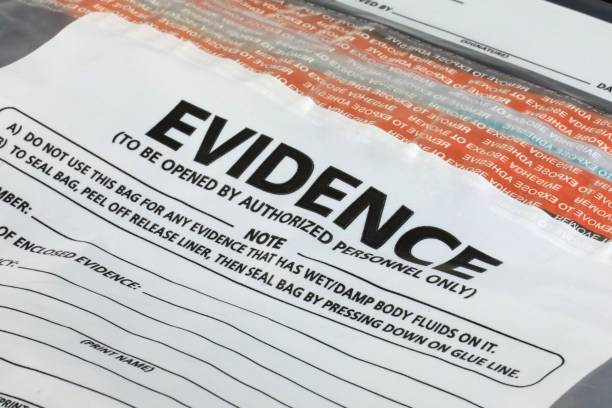
Workplace investigation How do I know it’s fair?
A workplace investigation can be an unsettling experience for many employees. Not only because the outcome could mean facing disciplinary action or dismissal. But also because it often involves attending formal meetings and facing allegations that may be embarrassing or frustrating, particularly if they’re not true.So, how do you know if your workplace investigation is being conducted fairly? And what are the signs of an unfair workplace investigation? We answer these questions and more in this article.
Countless unfair dismissal claims brought before the Fair Work Commission by employees have succeeded because their employer denied them a fair workplace investigation. It’s therefore essential that you’re aware of your employer’s obligations to provide a fair workplace investigation.
What is a workplace investigation?
A workplace investigation is the process of determining whether allegations of misconduct levied at an employee are true. Employers may conduct the workplace investigation themselves or hire an external agency.
The employer must ensure the workplace investigation is conducted fairly and thoroughly. It must also be unbiased and conducted in an efficient, timely and transparent manner. The aim is to gather all relevant evidence to make a determination based on the balance of probabilities. This typically includes gathering information through interviews with other employees, reviewing records, and viewing evidence such as CCTV footage.
The end result of a workplace investigation is to either exonerate the employee of the allegations. Or to provide sufficient cause to justify a disciplinary action or dismissal.

What kinds of misconduct can warrant a workplace investigation?
A workplace investigation will typically commence if an employee is alleged to have engaged in one or more of the following forms of workplace misconduct:
- Sexual harassment or sexual assault of a colleague.
- Using alcohol or drugs.
- Engaging in theft or fraud.
- Workplace bullying.
- Discriminating against an employee or job candidate.
- Violating company policy or safety guidelines.
- Refusing to adhere to a lawful and reasonable direction.
If you feel that the accusations made against you are false, our detailed article on the issue can guide you on how to respond.
Procedural fairness: The rights you have during a workplace investigation
Procedural fairness refers to the steps an employer must take to ensure an employee is given a fair and reasonable opportunity to defend themselves. That is, during their workplace investigation and before a disciplinary or performance decision is made. It relates to the decision-making process, rather than the decision itself.
In unfair dismissal cases, the Fair Work Commission typically assesses a number of factors to determine if procedural fairness was delivered. This includes whether:
- The employer adhered to established procedures for dismissal and conducted a reasonable, thorough workplace investigation into the cause of dismissal.
- The employee was given the opportunity to provide their perspective on the situation.
- The employee was allowed to seek advice or have a support person present during discussions of the issue.
- If the issue related to unsatisfactory performance, the employee was previously warned about their performance.
- The employee was given a fair amount of time to respond to the issue and the employer considered the employee’s response.

I’ve received a summary dismissal – should I still receive procedural fairness?
Summary dismissal refers to the termination of employment without prior notice due to serious misconduct by the employee. The employee does not receive pay in lieu of notice and is only paid for work performed up to the time of dismissal. Serious misconduct occurs when an employee deliberately violates the terms of their employment contract. This behavior is so severe that it makes it impossible to continue the employment relationship. Examples of serious misconduct include actions that pose a significant and immediate threat to someone’s health and safety or to the employer’s reputation, financial stability, or public image.
You are still entitled procedural fairness when you receive a summary dismissal for serious misconduct. Your employer must conduct a fair and thorough workplace investigation into your alleged serious misconduct and afford you all the rights we previously mentioned. For more information about summary dismissals and your rights as an employee, you can read our article on the topic here.
What are the signs that you may have been denied procedural fairness?
During your workplace investigation, it’s important to stay vigilant to ensure your employer isn’t cutting any corners – intentionally or accidentally – when it comes to procedural fairness. So, what signs should you be looking out for?
Here are some of the most critical indicators that you may have been denied procedural fairness during a workplace investigation:
- Being provided information about your accusation in a confusing or disorderly manner.
- Not being offered all relevant and significant information that needs to be addressed.
- Being denied information concerning the scope of your workplace investigation.
- During your workplace investigation, being accused of other unrelated or insignificant matters.
- Not being given the opportunity to present your side of the story.
- Not being given a reasonable amount of time to respond to the accusation.
- A key witness is conducting your workplace investigation, posing the risk of a conflict of interest.
- An individual holding biases or prejudices is overseeing your workplace investigation. These biases or prejudices could be either real or perceived.
- The investigation isn’t taking place in a timely manner (delays can often lead to unfair prejudice forming).
- Prior to the completion of your workplace investigation, your employer decided to take disciplinary action or dismiss you.
- You’re not apprised of the final results of your workplace investigation.
Now, let’s look at a few examples of unfair dismissal cases where the Fair Work Commission found that an employee was denied procedural fairness.

Workplace investigation example 1: Foreman’s dismissal valid, but denied procedural fairness
The unfair dismissal case Peter David Bostock v Austmont Pty Ltd [2022] is an example of the Fair Work Commission finding that there was a valid reason for an employee’s dismissal. But also, that it was an unfair dismissal because the employer had denied procedural fairness during its workplace investigation.
Factory foreman Peter Bostock was working full-time for Ausmont when an anonymous and baseless complaint was made against him. He subsequently took leave due to mental health issues, making two worker’s compensation claims. This included a claim that Ausmont had caused his psychological injury due to bullying him.
Shortly thereafter, Ausmont dismissed Mr Bostock due to his inability to perform the duties of his role. In his Fair Work Commission claim, Mr Bostock argued that he’d been unfairly dismissed as he was unable to return to work due to his mental illness. And more importantly, that his mental illness was caused by Ausmont.
Fair Work Commission finds workplace investigation was unfair
Despite finding a valid reason for dismissal, the Fair Work Commission ruled that Austmont had failed to conduct a fair workplace investigation. It found that Mr Bostock hadn’t been informed of the reason for his dismissal and that he wasn’t given the chance to respond to the allegations made against him.
In fact, the Fair Work Commission said that even if Mr Bostock were given the chance to respond, the dismissal would have been considered fair. But because he wasn’t, the Fair Work Commission deemed it an unfair dismissal.

Workplace investigation example 2: Store manager subjected to “procedurally disastrous” investigation
Similar to the previous unfair dismissal case, in Bridge v Globe Bottleshops Pty Ltd [2021] the Fair Work Commission deemed that a liquor store manager was dismissed for a valid reason. However, it was found that he “was not provided with any form of procedural fairness.”
The store manager, David Bridge, was dismissed for allegedly sexually harassing a customer. He had told her “would you like a r**t?” while laughing, before correcting himself and saying “receipt.” Mr Bridge was sent an email from his employer detailing the allegation. He was later stood down while a workplace investigation was conducted.
Mr Bridge denied the allegation in his first written response to his employer, which was deemed unsatisfactory. He was asked to provide a second response. Mr Bridge then asked for more information to help recall the incident. This included what the customer had bought from the store and to view CCTV footage.
The employer, however, refused to honour Mr Bridge’s requests in order to keep the customer’s identity private. He therefore was incapable of adding anything to his original written response. Mr Bridge was then summarily dismissed for serious misconduct.
Fair Work Commission finds workplace investigation was “procedurally disastrous”
At Mr Bridge’s unfair dismissal hearing, the Fair Work Commission found that there was a valid reason for dismissal. This was based on previous complaints about Mr Bridge’s offensive humour. However, the Fair Work Commission found that the workplace investigation “was nothing less than procedurally disastrous.”
The Fair Work commission identified several procedural deficiencies, including that the employer had:
- Failed to provide Mr Bridge with the details he’d requested. Therefore, the Fair Work Commission deemed that he wasn’t provided the chance to fully respond to the allegations that formed the basis of his dismissal.
- Didn’t interview Mr Bridge about the allegations.
- Had already decided that the allegation was true prior to conducting the workplace investigation.
The Fair Work Commission therefore ruled that Mr Bridge had received an unfair dismissal. His employer was ordered to pay him $3,000.

Conclusion to: Workplace investigation How do I know it’s fair?
Have you experienced an unfair workplace investigation?
I hope the article “Workplace investigation How do I know it’s fair?” has been helpful to you. If you think that your employer denied you employee and casual rights during your workplace investigation, we can help you take action. However, it’s important to act fast. You must lodge an unfair dismissal claim with the Fair Work Commission within 21 days of your dismissal. Alternatively you can take the issue to the Fair work Commission as a F8C application (general protections not involving dismissal) before your sacked. This would be done where your fighting for your job, reputation or wanting to discuss amongst the aspects of the case being packaged out.
We at A Whole New Approach are Australia’s leading workplace advisors and commentators. Over the last two decades, we’ve assisted over 16,000 Australian workers lodge applications with various commissions and tribunals. Forced to resign, casual employee matters, sacked from work, call today
We offer a no win, no fee service. Plus, a consultation with us is completely free and confidential. So, if you would like to have a no-obligation conversation with us, get in touch on 1800 333 666.
Articles similar to: Workplace investigation How do I know it’s fair?
The need for procedural fairness in a workplace investigation click here
Why its critical to be honest with your employer click here
Workplace or criminal investigation click here
Unfair dismissal why procedural fairness matters click here
Rights of casual employees click here






